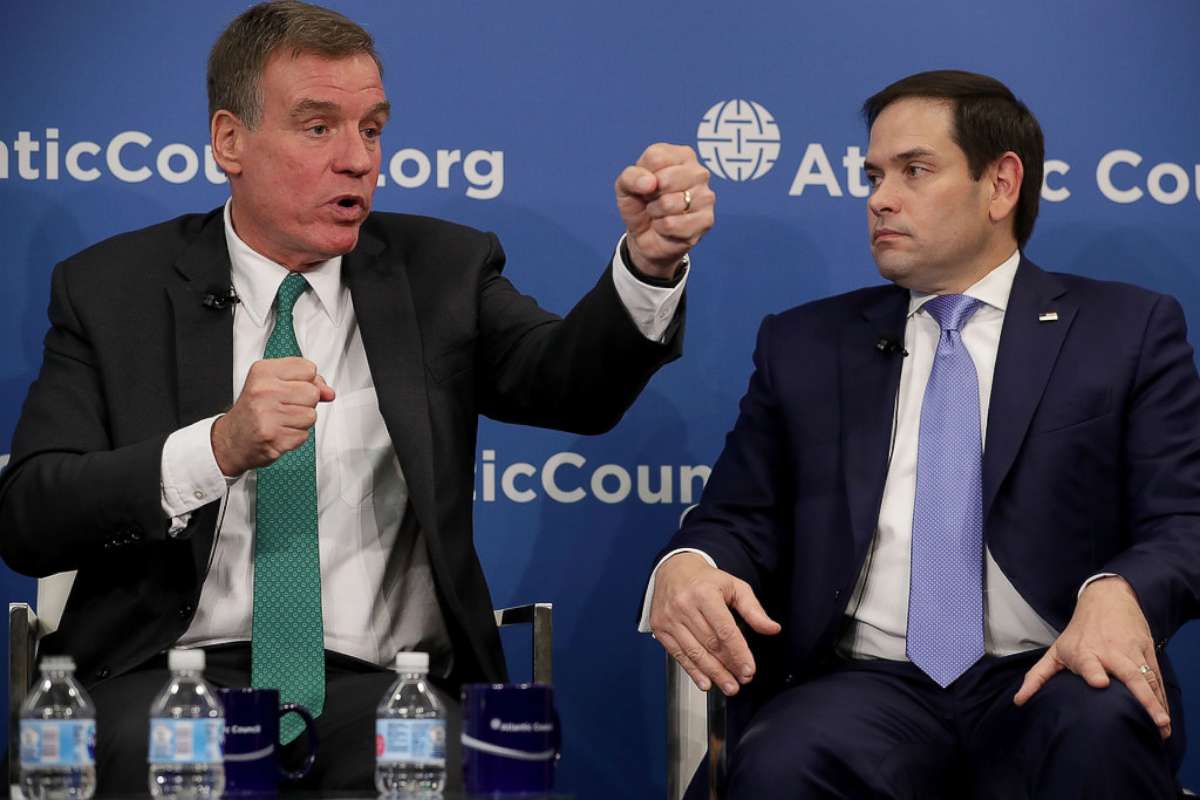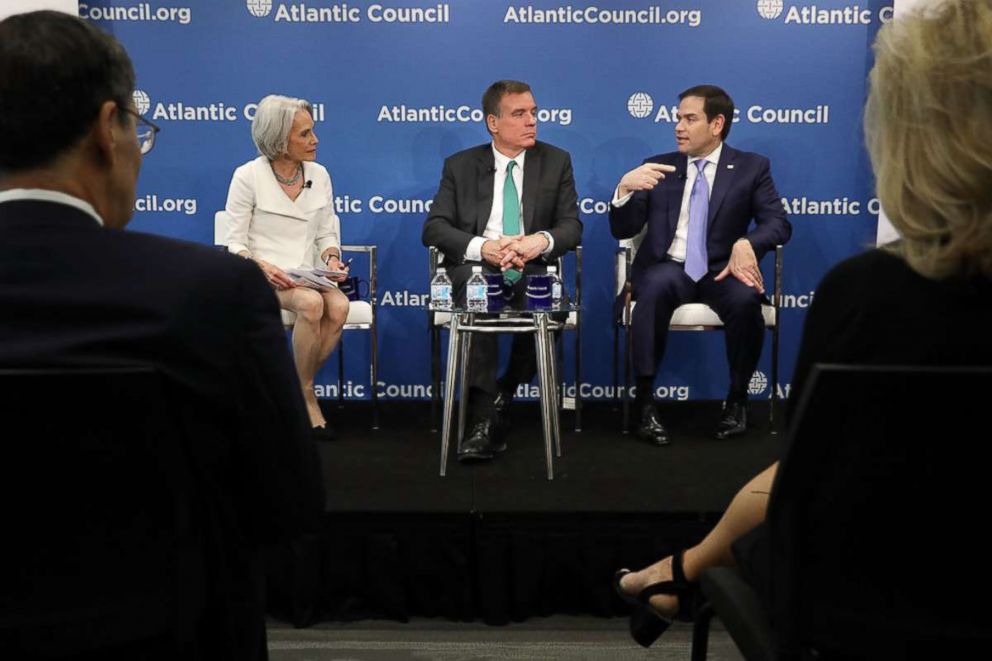Senators dispute Trump's assessment of election hacking
A bipartisan pair of Senators accused Russia of interfering in US elections.
A bipartisan pair of prominent U.S. senators objected to President Donald Trump's ambiguity on the extent of Russian interference in the 2016 election – part of a growing chorus of both Democratic and Republican lawmakers who have condemned the remarks.
Trump, during a joint press conference with Russian President Vladimir Putin on Monday, expressed confidence in his counterpart’s denial of responsibility, calling the Russian leader's response "extremely strong and powerful." Trump also cast doubt on U.S. intelligence on Russian election meddling. Putin himself had said the Russian government has not and will not interfere in the American electoral process during the U.S.-Russia joint press conference Monday.
“What the president said today is not accurate," Sen. Marco Rubio, a former Republican presidential candidate, said during a panel discussion hosted by the Atlantic Council Monday. "The intelligence community has assembled probably an unparalleled amount of evidence in regards to the Russian—not just efforts to interfere in 2016, but ongoing efforts to interfere in American society.”
Of the 51 Senate Republicans, at least 34 of them have so far issued paper statements, tweets or spoken to reporters about the Trump/Putin meeting in Helsinki.

Sen. Mark Warner, the ranking Democratic member on the Senate Intelligence Committee, also defended the assessments of the U.S. intelligence community and criticized the president for giving credence to Russia’s denials on election meddling.
Warner called the president’s comments “outrageous” and said he saw Putin’s expression of a preference for Trump as further confirmation of the intelligence community’s findings.
“In terms of Putin’s acknowledgment of preference for Trump, that’s simply a confirmation of what the intelligence community under President Obama and the intelligence community under President Trump have ascertained,” Warner said.
Rubio observed that Putin has been highly successful in creating instability during and after the 2016 presidential election, indicating that it was the Russian leader’s primary objective in intervening.
“Vladimir Putin’s number one objective was not the result of the election per se,” Rubio said. “His number one objective was to sow instability and doubt… I think he’s been highly successful.”

The U.S. intelligence community determined that Russia interfered in the 2016 presidential election, something that Director of National Intelligence Dan Coats reaffirmed on Monday in a statement standing by the community's prior assessment.
“We have been clear in our assessments of Russian meddling in the 2016 election and their ongoing, pervasive efforts to undermine our democracy," Coats said.
The political uproar over Trump’s comments come on the heels of the Justice Department’s announcement on Friday that 12 Russians have been indicted in connection with the hack of the Democratic National Committee and the attempted infiltration of at least 21 states' electoral databases before the 2016 election.
Warner had previously said that the summit should not have taken place after the indictments were announced unless President Trump made election interference the highest priority of the summit and the senator lamented the lack of other Americans inside the one-on-one meeting.
“One of the reasons we wanted additional individuals in the room on the American side was so that we could get a full readout of what happened in that one-on-one session,” Warner said. “I think there remains a great deal of questions about how hard the President actually pushed Mr. Putin... in terms of the Russian interference, in terms of the indictments of these twelve GRU Russian spies.”
Rubio also offered a contrast to the statements this past weekend from Homeland Security Secretary Kirstjen Nielsen, who said that Russia was not targeting the upcoming midterm elections with the same “scale or scope” as in 2016.
“I believe it will happen again. Whether it’s in '18 or '20 or in the future, I don’t think it’s going to be the last time.”
ABC News' Ali Rogin contributed to this report.




